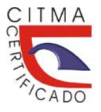Procesos sociales del aburrimiento juvenil: La Terapia Racional Emotiva Conductual y Matemática Recreativa como soluciones
DOI:
https://doi.org/10.5281/zenodo.15102384Palabras clave:
aburrimiento, juegos, matemática, recreación, terapiaResumen
Introducción: la sociedad dinámica contemporánea propone características de socialización divertida dentro de un modelo juvenil optimizado. Sin embargo, el ámbito de la Matemática instituye parangones innegables entre el aspecto cognitivo del joven y el cansancio. Objetivo: delinear acciones en favor de la recreación y promoción de las pericias del pensamiento crítico. Método: como fundamento a la Terapia Racional Emotiva Conductual fue posible delimitar lineamientos emocionales en bien del ámbito psicológico de un joven. Resultados: habiendo descubierto el gran principio del hastío y aplicando técnicas emocionales se obtuvieron medios dedicados a la recreación. Tal que, así se advirtieron técnicas matemáticas producto del gaming; desviando al tedio. A la par, se determinó a la Matemática Recreativa como una actividad motora y a las Tecnologías de la Información y Comunicación como herramientas cognitivas para dar solución viable. Conclusión: se logró minimizar el suceso de la deserción manejando los complementos numéricos como gestión lúdica; caso de heurísticos, multiculturales y psicomotores.
Descargas
Citas
Albert, SL, Massar, RE, Kwok, L., Correa, L., Polito Moller, K., Joshi, S., Shah, S., and McMacken, M. (2022). Pilot Plant-Based Lifestyle Medicine Program in an Urban Public Healthcare System: Evaluating Demand and Implementation. American Journal of Lifestyle Medicine. https://doi.org/10.1177/15598276221113507
Beaupoil Hourdel, P. (2020). Telling stories multimodally: what observations of parent-child shared book-reading activities can bring to L2 kindergarten teachers' training. In Language learning and professionalization in higher education: pathways to preparing learners and teachers in/for the 21st century. https://doi.org/10.14705/rpnet.2020.44.1105
Bopp, C., Salzmann, A., Volz-Willems, S., Jäger, J., and Dupont, F. (2022). The Role of Providing Structure in a Family Medicine Curriculum for Undergraduate Medical Education. Zeitschrift Fur Allgemeinmedizin, 98 (11). https://doi.org/10.53180/zfa.2022.0396-0401
Burston, A., Miles, S.J., and Fulbrook, P. (2023). Patient and caregiver experience of living with a pressure injury: A meta-synthesis of qualitative studies. In Journal of Clinical Nursing, 32(13-14). https://doi.org/10.1111/jocn.16431
Chang, D.H., Lin, M.P.C., Hajian, S., and Wang, Q.Q. (2023). Educational Design Principles of Using AI Chatbot That Supports Self-Regulated Learning in Education: Goal Setting, Feedback, and Personalization. Sustainability (Switzerland), 15(17). https://doi.org/10.3390/su151712921
Cimino, S. (2023). Some notes on the phenomenology of psychological disorders: from the birth of Freudian psychoanalysis to the possible contribution of multiple etiopathogenic factors. Scandinavian Psychoanalytic Review, 46(1-2). https://doi.org/10.1080/01062301.2023.2281132
Friedman, Z.L., Hubbard, K., and Seruya, F. (2023). Building Better Teams: Impact of Education and Coaching Intervention on Interprofessional Collaboration Between Teachers and Occupational Therapists in Schools. Journal of Occupational Therapy, Schools, and Early Intervention, 16(2). https://doi.org/10.1080/19411243.2022.2037492
Hill, A., and Peuker, S. (2024). Expanding students' social networks via optimized team assignments. Annals of Operations Research, 332(1-3). https://doi.org/10.1007/s10479-023-05492-2
Hou, H.T., Fang, Y.S., and Tang, J.T. (2023). Designing an alternate reality board game with augmented reality and multi-dimensional scaffolding for promoting spatial and logical ability. Interactive Learning Environments, 31(7). https://doi.org/10.1080/10494820.2021.1961810
Konstantinov, N.N., and Semenov, A.L. (2021). Productive education in the mathematical school. Chebyshevskii Sbornik, 22(1). https://doi.org/10.22405/2226-8383-2021-22-1-413-446
Kuswanto, AV, Wibowo, DV, and Setiawati, FA (2023). The Synergy of the Three Pillars of Education in Early Childhood Character Education. Al- Athfaal : Jurnal Ilmiah Pendidikan Anak Usia Dini, 6(1). https://doi.org/10.24042/ajipaud.v6i1.16068
Mardiani, A., Ismail, H. Bin, and Ahmad, I.S. (2023). The Challenges in Inculcating Islamic values in the National Educational System in the Era of Globalization: A Case-Study at a Private Secondary School. IJECA (International Journal of Education and Curriculum Application), 6(2). https://doi.org/10.31764/ijeca.v6i2.14020
Mehmood, A., Marsden, T., Taherzadeh, A., Axinte, L.F., and Rebelo, C. (2020). Transformative roles of people and places: learning, experiencing, and regenerative action through social innovation. Sustainability Science, 15(2). https://doi.org/10.1007/s11625-019-00740-6
Perrotta, C., Gulson, K.N., Williamson, B., and Witzenberger, K. (2021). Automation, APIs and the distributed labor of platform pedagogies in Google Classroom. Critical Studies in Education, 62(1). https://doi.org/10.1080/17508487.2020.1855597
Wampold, B.E., and Flückiger, C. (2023). The alliance in mental health care: conceptualization, evidence and clinical applications. World Psychiatry, 22(1). https://doi.org/10.1002/wps.21035
Wilson, CD, Haudek, KC, Osborne, JF, Buck Bracey, ZE, Cheuk, T., Donovan, B.M., Stuhlsatz, M.A.M., Santiago, M.M., and Zhai, X. (2024). Using automated analysis to assess middle school students' competence with scientific argumentation. Journal of Research in Science Teaching, 61(1). https://doi.org/10.1002/tea.21864
Yusri, R.D., Fauzan, A., and Yarman. (2023). Analysis of Students' Mathematics Learning Difficulties During Online Learning Using Zoom Meeting (Case Study on Students Who Has Low Interest in Learning Mathematics). AIP Conference Proceedings, 2805(1). https://doi.org/10.1063/5.0150110
Zhang, J.Y., Liu, Y.J., Shu, T., Xiang, M., and Feng, Z.C. (2022). Factors associated with medical students' self-regulated learning and its relationship with clinical performance: a cross-sectional study. BMC Medical Education, 22(1). https://doi.org/10.1186/s12909-022-03186-0
Publicado
Cómo citar
Número
Sección
Licencia
Derechos de autor 2025 Universidad & ciencia

Esta obra está bajo una licencia internacional Creative Commons Atribución-NoComercial-CompartirIgual 4.0.





















